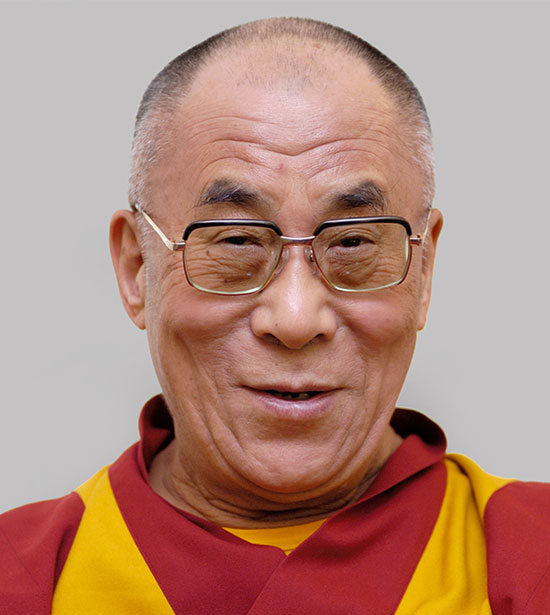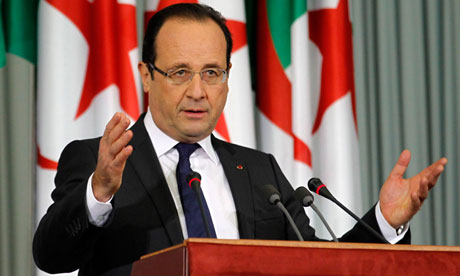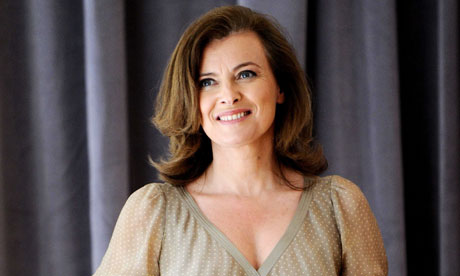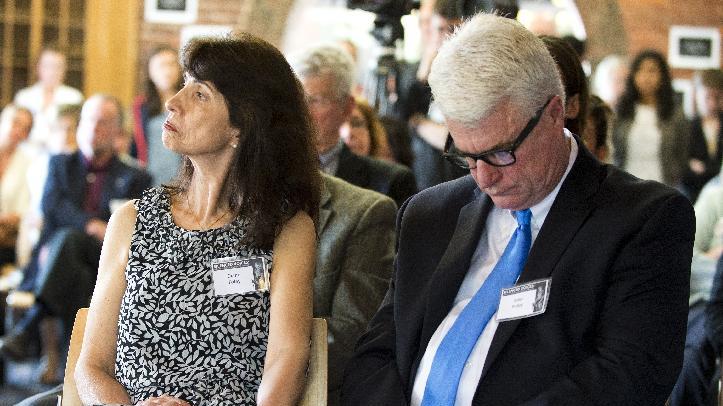UK News
-
 'They wanted $4m': what M&S can learn from other cyber attacks
As Marks & Spencer grapples with the fallout of a significant cyber attack, others who’ve been through similar ordeals are offering insight into what it’s like to be targeted by hackers—and...Read More...
'They wanted $4m': what M&S can learn from other cyber attacks
As Marks & Spencer grapples with the fallout of a significant cyber attack, others who’ve been through similar ordeals are offering insight into what it’s like to be targeted by hackers—and...Read More... -
 UK mortgage borrowing spikes before tax break ends
UK homebuyers significantly increased mortgage borrowing in March, rushing to take advantage of a tax break before it expired. According to Bank of England (BoE) data released Thursday,Read More...
UK mortgage borrowing spikes before tax break ends
UK homebuyers significantly increased mortgage borrowing in March, rushing to take advantage of a tax break before it expired. According to Bank of England (BoE) data released Thursday,Read More... -
 SFO launches international bribery probe into data centre contract
The Serious Fraud Office (SFO) has launched a multi-million pound international bribery investigation, conducting raids on five properties and arresting three individuals.Read More...
SFO launches international bribery probe into data centre contract
The Serious Fraud Office (SFO) has launched a multi-million pound international bribery investigation, conducting raids on five properties and arresting three individuals.Read More... -
 Nigel Farage and Reform UK face crucial test in local elections
Reform UK leader Nigel Farage is facing a major test in the UK’s local elections this Wednesday, as his party attempts to capitalize on growing support and position itself as a seriousRead More...
Nigel Farage and Reform UK face crucial test in local elections
Reform UK leader Nigel Farage is facing a major test in the UK’s local elections this Wednesday, as his party attempts to capitalize on growing support and position itself as a seriousRead More... -
 Chancellor Rachel Reeves under investigation over gifted theatre tickets
Chancellor Rachel Reeves is under investigation by Parliament's standards commissioner concerning her entries in the Commons register of interests.Read More...
Chancellor Rachel Reeves under investigation over gifted theatre tickets
Chancellor Rachel Reeves is under investigation by Parliament's standards commissioner concerning her entries in the Commons register of interests.Read More...

Culture
-
 Harrogate’s cherry blossoms rival Japan’s sakura season
While Japan’s iconic cherry blossom season draws millions each year, a town in North Yorkshire is proving you don’t need to fly 6,000 miles to experience the magic.Read More...
Harrogate’s cherry blossoms rival Japan’s sakura season
While Japan’s iconic cherry blossom season draws millions each year, a town in North Yorkshire is proving you don’t need to fly 6,000 miles to experience the magic.Read More... -
 British Library set for £1.1 billion expansion
The British Library, the largest in the UK, is set for a major transformation with a £1.1 billion expansion project now approved.Read More...
British Library set for £1.1 billion expansion
The British Library, the largest in the UK, is set for a major transformation with a £1.1 billion expansion project now approved.Read More... -
 Export bars placed on two 18th century Agostino Brunias paintings
Two paintings by the 18th-century Italian artist Agostino Brunias, both depicting scenes from the Caribbean island of St Vincent, have been placed under temporary export bars to give UKRead More...
Export bars placed on two 18th century Agostino Brunias paintings
Two paintings by the 18th-century Italian artist Agostino Brunias, both depicting scenes from the Caribbean island of St Vincent, have been placed under temporary export bars to give UKRead More... -
 Pope recognizes Antoni Gaudí's "heroic virtues," puts him on path to sainthood
The Vatican has taken a significant step toward making renowned Spanish architect Antoni Gaudí a saint, officially recognizing his "heroic virtues." Often referred to as "God's architect,"Read More...
Pope recognizes Antoni Gaudí's "heroic virtues," puts him on path to sainthood
The Vatican has taken a significant step toward making renowned Spanish architect Antoni Gaudí a saint, officially recognizing his "heroic virtues." Often referred to as "God's architect,"Read More... -
 Britain’s oldest Indian restaurant faces closure amid Central London lease dispute
Veeraswamy, the UK's oldest Indian restaurant, is facing the threat of closure just before reaching its centenary, due to a lease disagreement with the Crown Estate.Read More...
Britain’s oldest Indian restaurant faces closure amid Central London lease dispute
Veeraswamy, the UK's oldest Indian restaurant, is facing the threat of closure just before reaching its centenary, due to a lease disagreement with the Crown Estate.Read More... -
 Communities invited to nominate beloved UK traditions for National Heritage List
This summer, communities across the UK will be able to nominate their favourite traditions—from iconic celebrations like Notting Hill Carnival and Hogmanay to time-honoured crafts likeRead More...
Communities invited to nominate beloved UK traditions for National Heritage List
This summer, communities across the UK will be able to nominate their favourite traditions—from iconic celebrations like Notting Hill Carnival and Hogmanay to time-honoured crafts likeRead More... -
 £20m museum renewal fund opens for England’s civic museums
Civic museums across England can now apply for a share of the new £20 million Museum Renewal Fund, aimed at boosting access to collections, enhancing educational programmes, andRead More...
£20m museum renewal fund opens for England’s civic museums
Civic museums across England can now apply for a share of the new £20 million Museum Renewal Fund, aimed at boosting access to collections, enhancing educational programmes, andRead More... -
 The underrated UK city that was England’s first capital — 1,000 years before London
Tucked away in Essex lies a city that predates London as England's capital by over a millennium. Rich in Roman and medieval history, Colchester only officially became a city in 2022 as part ofRead More...
The underrated UK city that was England’s first capital — 1,000 years before London
Tucked away in Essex lies a city that predates London as England's capital by over a millennium. Rich in Roman and medieval history, Colchester only officially became a city in 2022 as part ofRead More... -
 Universal Studios to open first UK theme park in Bedford by 2031, creating 28,000 jobs
The UK is officially getting its first Universal Studios theme park, with a grand opening set for 2031. The landmark project, backed by the UK government, is expected to bring in a staggeringRead More...
Universal Studios to open first UK theme park in Bedford by 2031, creating 28,000 jobs
The UK is officially getting its first Universal Studios theme park, with a grand opening set for 2031. The landmark project, backed by the UK government, is expected to bring in a staggeringRead More... -
 MI5 lifts the veil on 115 years of secrets in new exhibition
For the first time in its 115-year history, MI5 is pulling back the curtain on its shadowy past. A new exhibition at the National Archives in London, MI5: Official Secrets, offers the public anRead More...
MI5 lifts the veil on 115 years of secrets in new exhibition
For the first time in its 115-year history, MI5 is pulling back the curtain on its shadowy past. A new exhibition at the National Archives in London, MI5: Official Secrets, offers the public anRead More... -
 Tourist tax could help revive London’s arts and culture scene
A growing number of voices are calling on the government to allow London to introduce a tourist tax, similar to those already in place in many popular European cities. The Centre for LondonRead More...
Tourist tax could help revive London’s arts and culture scene
A growing number of voices are calling on the government to allow London to introduce a tourist tax, similar to those already in place in many popular European cities. The Centre for LondonRead More... -
 £1bn Chinese ceramics gift to British Museum approved
The Charity Commission has officially approved the largest donation in the British Museum’s history—a collection of Chinese ceramics valued at around £1 billion.Read More...
£1bn Chinese ceramics gift to British Museum approved
The Charity Commission has officially approved the largest donation in the British Museum’s history—a collection of Chinese ceramics valued at around £1 billion.Read More... -
 UK to return Nazi-looted painting to Jewish family
A 17th-century painting stolen by the Nazis in 1940 from a Jewish art collector in Belgium is set to be returned to the collector’s descendants, the British government announced on Saturday,Read More...
UK to return Nazi-looted painting to Jewish family
A 17th-century painting stolen by the Nazis in 1940 from a Jewish art collector in Belgium is set to be returned to the collector’s descendants, the British government announced on Saturday,Read More...

British Queen celebrates
Most Read
- Teen held after US woman killed in London stabbings
- Heave-ho Harry! Prince prepares to join the walking wounded in ice trek to North Pole
- Football: Farhad Moshiri adamant Everton deal above board
- "Master of English Style". Interview with Designer Lydia Dart
- Letter to the Financial Times from Lord Mayor Alderman Michael Bear
World News

California approved a law which will prevent paparazzi from using drones to take photos of celebrities, among a series of measures aimed at tightening protection of privacy.
Governor Jerry Brown signed into law a string of legislative bills also including an expansion of one against so-called "revenge porn," when former lovers share nude photos of their exes online.
The drone ban bill, which is aimed at shoring up privacy for the general public but will work equally well for celebrities, was authored by lawmaker Ed Chau.
"As technology continues to advance and new robotic-like devices become more affordable for the general public, the possibility of an individual’s privacy being invaded substantially increases," he said.
"I applaud the governor for signing (the law) because it will ensure that our state's invasion of privacy statute remains relevant even as technology continues to evolve," he added on his website.

The International Criminal Court has opened a formal investigation into an "endless list" of atrocities committed in the Central African Republic, prosecutor Fatou Bensouda said on Wednesday.
"My office has gathered and scrupulously analysed relevant information from multiple reliable sources," Bensouda said in a statement.
The move comes after a preliminary ICC investigation earlier this year into the violence that has plagued the country for over 18 months established that there were grounds to prosecute war crimes and crimes against humanity.
"My office has gathered and scrupulously analysed relevant information from multiple reliable sources," Bensouda said in a statement.
"Based on this independent and comprehensive analysis, I have concluded that an investigation is warranted."
The country plunged into conflict after a coup in March 2013 by a mainly Muslim rebel alliance, the Seleka, which overthrew president Francois Bozize and made their own man, Michel Djotodia, head of state.

The Dalai Lama will convene a rare meeting of India's religious leaders to try to tackle rape, communal violence and other issues facing the world's biggest democracy, an aide said Tuesday.
The Nobel Peace Prize winner has invited India's spiritual leaders for the two-day meeting this weekend to seek practical strategies to address "important issues ailing society today", a statement said.
The aide, Gelek Namgyal, said the spiritual leader of Tibetan Buddhism, who has lived in India since 1959, was deeply concerned about levels of violence in the country, along with environmental degradation and poverty.
Namgyal said the Dalai Lama's initiative was not a criticism of India's Hindu nationalist right-wing government, which swept to power in May.
But the meeting in New Delhi, the first such gathering organised by the Dalai Lama, comes at a time of rising communal tensions in India, particularly between majority Hindus and minority Muslims.
"His Holiness has decided to come forward because he is concerned about the problems in India," Namgyal told AFP.

A-list designers broke new ground at New York Fashion week with innovative stagings led by wedding couturier to the stars Vera Wang, Polo by Ralph Lauren and Donna Karan.
Wang, 65, one of America's most popular fashion designers, loves black and her collection for spring/summer 2015 was no exception.
Wang decked out a Chelsea gallery in a striking take on the famous Tuileries Garden in Paris where the models came out from behind a wall of black box trees and strode down a gravel-strewn runway that was difficult to navigate in high heels.
"It's a bit my version of the Tuileries... done in a very New York way, notably in the lack of color," she explained to AFP.
It may not have been Versailles but Wang said her collection had "the spirit, extravagence and feminity, but also the weakness and pride of Marie-Antoinette."
There were ruffles, ruching, wide pleats belted at the waist, mini dresses, crepe trousers, bandeau tops and asymmetric jackets.

Francois Hollande's spurned girlfriend turned poison pen has skipped France for the Indian Ocean isle of Madagascar, a day after dropping a bombshell with her best-selling kiss-and-tell about life with the president.
Airport sources in Madagascar said Valerie Trierweiler arrived in the capital Antananarivo Saturday morning, and was then to catch a domestic flight to points unknown.
It was unclear whether Trierweiler, a journalist, was visiting the French-speaking isle for business, humanitarian work or simply to avoid the blaze of public scrutiny her book has ignited.
"Thank You For The Moment", in which the glamorous 49-year-old dishes on her tempestuous relationship with Hollande including her pill-popping suicide attempt after discovering his adulterous affair, has skyrocketed in sales on shelves and online since its release on Thursday.
It shot to the top of Amazon France's bestseller list in just one day, and has since "sold out at almost all points of sale, proof of its extraordinary debut", according to the head of the French booksellers union.
Trierweiler met Hollande in the mid-2000s while he was in a relationship with fellow politician Segolene Royal -- herself a former presidential candidate -- and the pair began a secret liaison.
Hollande subsequently left Royal, the mother of his four children, for Trierweiler who became the de facto first lady of France after he was elected in 2012, despite the fact the pair were not married.
Trierweiler says in the book she tried to commit suicide in the presidential bedroom with an overdose of sleeping pills after news of Hollande's affair with actress Julie Gayet broke in January.
Hollande announced shortly thereafter that his relationship with Trierweiler was over.

In many places swimmers might prefer to avoid sharks, but wetsuit-clad tourists in Palau clamour to dive among the predators thanks to a pioneering conservation initiative that has made them one of the country's main visitor attractions.
Palau created the world's first shark sanctuary in 2009 and the move has been so successful that plans are now underway to completely ban commercial fishing in the island nation's vast ocean territory by 2018.
The fishing-free zone in the northern Pacific, described as unprecedented by famed US marine scientist Sylvia Earle, will cover 630,000 square kilometres (240,000 square miles), an area almost the size of France.
The architect of the ambitious plan is Palau President Tommy Remengesau, who said the ban was needed to "let the ocean heal" after years of industrialised fishing in the Pacific that has seen stocks of some species such as bluefin tuna fall to critical levels.
Remengesau said Pacific island nations, which are also struggling to deal with climate change, were effectively "the conscience of the world" on environmental matters and had to lead by example because of their special connection with the ocean.
"The ocean is our way of life," he said. "It sustains and nurtures us, provides us with the basics of our Pacific island cultures, our very identities."
Just a decade ago, dozens of so-called "shark boats" regularly docked in Palau's commercial centre Koror, hanging fins to dry from their rigging as they worked to supply a seemingly insatiable demand in Asia for the primary ingredient in shark fin soup.
During the height of the trade, an estimated 73 million sharks a year had their fins hacked off and were thrown back into the sea to die.
"I would have been very upset to see that," said Maayan Sagr, a 22-year-old Israeli tourist on a six-week dive master's course in Palau, which is regularly voted the world's top spot for underwater enthusiasts.
"The nature and the sharks are the reason I came here," she said. "Everybody knows it's quiet and peaceful but the main attraction is the sharks, getting to see them in their natural environment."
Remengesau said Palau's world-first shark protection measures sparked global change in attitudes towards the top predator, which went from being seen as a dangerous pest to a valuable part of the eco-system.
About one-third of the world's countries have followed the Pacific nation's lead in banning shark-finning, according to the Pew Environment Group.
Crucially, demand for shark fin soup in China has waned thanks to a ban from official state banquet tables and celebrities publicly speaking out against eating the dish, which is often regarded as a status symbol.
Remengesau said sharks had more value to Palau as eco-tourism assets, citing a 2011 study that found a single reef shark could contribute almost US$2.0 million to the economy over its 10-year lifespan via the dive tourists it attracts.
"We feel that a live shark is worth a thousand times more than a dead one," he said.

France's former first lady Valerie Trierweiler was roundly attacked Thursday for her kiss-and-tell book about her acrimonious split with President Francois Hollande after his affair with an actress.
The surprise memoir, which hit bookstands on Thursday and in which she recounts her stormy relationship with Hollande, was described as "outrageous" by Prime Minister Manuel Valls and a "dishonour for France" by right-wing leader Marine Le Pen, usually a trenchant critic of Hollande.
Hollande's previous partner Segolene Royal, the mother of his four children whom he left for Trierweiler, also shot down as "rubbish" the book's claim that Hollande -- who became France's first Socialist president in nearly two decades when he was elected 2012 -- secretly despised the poor.

Closing in on his 104th birthday, a twinkle-toed Japanese sprinter has thrown down the challenge to the world's fastest man Usain Bolt, telling him: "let's rumble!"
Hidekichi Miyazaki -- who holds the 100 metres world record for centenarians at 29.83 seconds and is dubbed 'Golden Bolt' after the Jamaican flyer -- plans to wait another five years for his dream race and was happy to reveal his secret weapon: his daughter's tangerine jam.
"I'd love to race Bolt," the wispy-haired Miyazaki told AFP in an interview after tottering over the line with a joyful whoop at a recent Japan Masters Athletics competition in Kyoto.
"I'm keeping the dream alive. I try to stay in top shape and stay disciplined and healthy. That's important for everyone -- even Usain Bolt."
Born in 1910 -- the year Japan annexed Korea and when the Titanic was still under construction -- the pint-sized Miyazaki offered some dietary tips to Bolt, whose world record is 9.58 seconds.
"My body is small so I take care of what I eat," said Miyazaki, who stands just 1.53 metres (five feet) tall and weighs in at 42 kilograms (92 pounds).
"When I eat, I chew each mouthful 30 times before swallowing," he added, loosening his Usain Bolt running shoes. "That makes my tummy happy and helps my running. And I eat my tangerine jam every day."
In a country with one of the world's highest life expectancies, Miyazaki is the poster boy for Japan's turbo-charged geriatrics.
Some 6,000 pensioners are registered at the Masters federation which hosts more than 40 track and field meetings every year across the nation.
Serenaded by buzzing cicadas in sweltering heat, Miyazaki fell into the arms of 73-year-old daughter Kiyono after clocking 38.35 -- more than 20 seconds behind race winner Yoshio Kita, a relative spring chicken at 82.
"I'd give myself five out of 10 for that," he said after regaining his breath and copying Bolt's trademark 'lightning' pose. "Before I ran I curled up for a little nap -- big mistake! I felt stiff.
"I'm still young so it's a learning process," joked Miyazaki, grinning from ear to ear as he put on a straw hat. "I can run for another five years."
Miyazaki, who hails from tea-growing Shizuoka prefecture, about 200 kilometres southwest of Tokyo, was a late bloomer, only taking up running at the age of 92 after watching an old people's sports day broadcast on television.
Having become the planet's fastest centenarian in 2010, he now has his sights on another milestone in the unlikely 105-109 age group category.
"That's what I'm training for," said Miyazaki, who loses valuable seconds at the start of races because he can't hear the gun go off.
"It's my birthday next month and that's my next goal."
He need only cross the finish line to set the new world record as no official mark exists in that age class.
As Miyazaki left the track, 85-year-old Mitsue Tsuji tossed a shot put 4.73 metres -- this after she had set a mark of 2.07 metres in the long jump. Not content, she set a meet

With the setting sun glittering on the Hudson, nearly 5,000 people turned out Monday for the fourth edition of "Diner en blanc" (Dinner in White), dressed to the nines.
In what amounts to a flashmob sunset picnic, diners get details of the event with virtually no notice, and turn up all in white -- even bringing chairs.
This year, the surprise locale was Nelson Rockefeller Park, in Manhattan, with its enviable river view. As it is every year, the location was kept secret until minutes before organizers announced it.
Guests, who register in advance, turned out with tables, chairs, tableware -- all in white.
The tradition dates back to an original event 26 years ago in Paris at which the organizer invited guests to all wear white so they would be easily spotted in a park.
The weather was more than cooperative. The music was more than a soupcon French, with tunes from Edith Piaf, to Michel Fugain and Joe Dassin.
Guests often get a little whimsical in their dress, with massive hats, masks, feathers and the odd huge string of pearls.
This year, there was sushi, charcuterie, salads, salmon, a cheese plate and champagne before dancing.

Friends, relatives and colleagues have paid tribute to American journalist James Foley, executed by Islamic State jihadists, with his parents praising their "fearless" son.
Condolences and shocked messages poured in after the Islamist group released a video of Foley's beheading late Tuesday, including from French journalists who revealed they had been held alongside him in the past year.
Foley, 40, had been missing since he was seized in Syria in November 2012.
"We're very proud of him. He was a courageous, fearless journalist, a very compassionate American. He was just a hero," Foley's mother Diane told reporters outside their New Hampshire home.
"It haunts me, how much pain he was in and how cruel this method of execution is as opposed to so many others," said his father John. "We believe he was a martyr, a martyr for freedom."
French journalists Didier Francois and Nicolas Henin, who were released by Syrian jihadists earlier this year, revealed on Wednesday they had been held alongside Foley.
"He was an extraordinary guy, an extremely nice companion in detention, very solid," said Francois of Europe 1 radio, who was held with Foley from October 2013 until his release in April.
"This was someone who never fully submitted to the kidnappers. He was always thinking of others during the whole detention, notably asking for food for everyone."
Henin of L'Express magazine said Foley had faced particular abuse from their jailers because he was American and his brother is in the US air force.
"He was a guy of great bravery," said Henin. "He became the whipping-boy of the jailers ... but remained unperturbed."
On Twitter, fellow journalists implored users not to view the graphic video of the execution, instead sharing images of Foley in the field.
Dick Costolo, Twitter's CEO, wrote: "We have been and are actively suspending accounts as we discover them related to this graphic imagery."
In the nearly five-minute video, titled "A Message to America" and distributed online by known Islamic State sources, the group declares that Foley was killed after Obama ordered air strikes against IS positions in northern Iraq.
Thousands posted messages of sorrow on the Facebook site Free James Foley, while US President Barack Obama said the entire world was appalled by the execution.
"No just god would stand for what they did yesterday," he said.
British Prime Minister David Cameron said the murder was "brutal and barbaric".
It was "increasingly likely" that a British jihadist had carried out the killing, Cameron said, adding that "far too many" Britons had travelled to the region to take part in extremism.
The International Federation of Journalists (IFJ) expressed its deep shock at "the appalling beheading."
"This horrifying and cowardly killing of an unarmed man is another call for action to protect journalists and civilians who are brutally targeted by armed groups and terrorists" said Jim Boumelha, IFJ President.





















